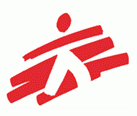Mr. William C. Weldon
CEO and Chairman of the Board
Johnson & Johnson
One Johnson & Johnson Plaza
New Brunswick, New Jersey 08933
USA
New York, April 20, 2011
Dear Mr. Weldon,
Doctors Without Borders/Médecins Sans Frontières (MSF) wrote to you in the fall of 2009 and 2010 urging Tibotec/Johnson & Johnson (J&J) to license its HIV/AIDS patents to the Medicines Patent Pool established by UNITAID.
As you are aware the Medicines Patent Pool has started negotiations with companies and has already received widespread support from governments and international organizations, as well as its first license from the U.S. National Institutes of Health (NIH) for several patents relating to J&J’s HIV/AIDS medicine darunavir.
I am writing on behalf of MSF to express our disappointment that J&J has not yet placed any patent into the Medicines Patent Pool and that it has announced in a recent letter to the Medicines Patent Pool that it is not ready to engage in formal negotiations.
As a medical humanitarian organization treating more than 170,000 people living with HIV/AIDS, MSF consistently strives to improve the quality of treatment options offered to patients, and relies on the availability of affordable generic antiretrovirals (ARVs) to sustain our treatment programs. As such, we are deeply concerned about the rising costs associated with newer ARVs, which are preventing access to optimal treatment regimens for people living with HIV in developing countries.
J&J has the opportunity to voluntarily make a valuable contribution to reversing this trend by providing its patents on rilpivirine, darunavir, and etravirine to the Medicines Patent Pool.
Rilpivirine is a promising potential ARV in a first-line treatment regimen. The product is likely to have important benefits, combined as a once-daily treatment, inexpensive to manufacture and potentially safe for use in pregnant women.
Additionally, patients on treatment in some of our longest-running HIV projects, including in South Africa, Mozambique, Kenya and Cameroon are experiencing treatment failure. Darunavir and etravirine are both important drugs for treatment-experienced patients and have been listed in the World Health Organization treatment guidelines as potential components of a salvage regimen.
By putting the patents for these three important medicines as well as any ARVs currently under development into the Medicines Patent Pool, J&J would contribute to saving the lives of patients across the developing world.
In this respect, J&J’s recent efforts to increase access to lifesaving medicines in the developing world have been insufficient. J&J’s ‘access pricing’ remains unaffordable for the developing world with darunavir priced at US$1,095 per patient per year (ppy) and etravirine at US$913 ppy.
Generic competition, which the Medicines Patent Pool was established to foster, has been the most effective means to ensuring access to medicines for HIV/AIDS treatment. The recent individual licenses that J&J has granted to a select and limited number of generic companies in India and South Africa for darunavir, etravirine and rilpivirine are too restrictive.
When a license is given to a single manufacturer for a restricted geographic area, the competition between multiple manufacturers that has proved to be essential to ensuring that treatment scale-up can happen in resource-limited settings to the levels seen today is made impossible. The license for etravirine, as detailed on Tibotec’s website, is only with one company and only for distribution in sub-Saharan Africa. The darunavir license includes in addition one Indian company for distribution in India. With the potential role of rilpivirine in first-line treatment in years ahead, we are also concerned about limited production capacity when the license only covers three generic companies.
The licenses also exclude many patients living in developing countries. The licensing agreement for rilpivirine covers more countries than the licenses for etravirine and darunavir yet this license is still limited to India, Sub-Saharan Africa and least-developed countries, thereby excluding all of Latin America, Central Asia and most of the Caribbean and South East Asia.
As mentioned, the Medicines Patent Pool in late 2010 received its first license from NIH for several patents relating to darunavir—a drug for which J&J holds the remaining patents. The terms of the NIH license on darunavir includes all developing countries, in line with the Medicines Patent Pool’s aim and in sharp contrast to J&J’s recent license agreements. Given the darunavir license from the NIH, the J&J decision not to join the Medicines Patent Pool is now blocking the opportunity of manufacturing and distributing darunavir for patients in developing countries at an affordable price.
Furthermore, the collective management of patents through the Medicines Patent Pool will allow for the creation of fixed-dose combinations and pediatric formulations in a more effective manner than individual voluntary licenses schemes from multiple originators.
We urge you to concretely demonstrate your intention to enhance access to lifesaving medicines by publicly announcing that you are entering into formal and transparent negotiations with the Medicines Patent Pool, with the intention of licensing all relevant patents for HIV-related medicines in developing countries. It is easy, as J&J’s recent initiatives have shown, to make voluntary licenses work for commercial interests—the challenge is making them also work for public health needs in order to tackle the AIDS epidemic.
I would be most interested in meeting you to discuss this matter in greater detail.
Yours sincerely,
Sophie Delaunay
Executive Director
Doctors Without Borders/Médecins Sans Frontières (MSF) USA
Cc: Paul Stoffels, Worldwide Chairman Pharmaceuticals, Johnson and Johnson
Will Stephens, Vice President of Global Access and Partnerships, Johnson and Johnson
Ellen't Hoen, Executive Director, Medicines Patent Pool Foundation
Francis Collins, Director, United States National Institute of Health
Michel Sidibé, Executive Director, UNAIDS
Eric Goosby, Ambassador, U.S. President s Emergency Plan for AIDS Relief (PEPFAR)
Michel D. Kazatchkine, Executive Director, Global Fund to Fight AIDS, Tuberculosis and Malaria
Tido von Schoen-Angerer, Executive Director, MSF Campaign for Access to Essential Medicines
Michelle Childs, Policy and Advocacy Director, MSF Campaign for Access to Essential Medicines




